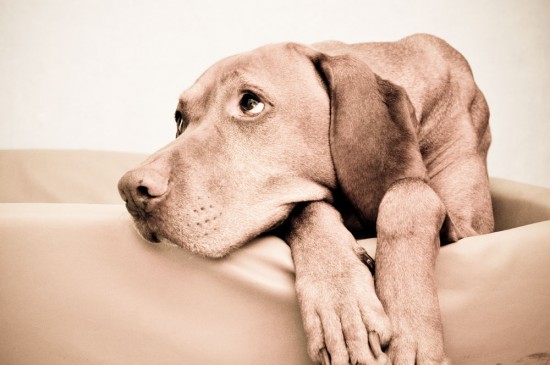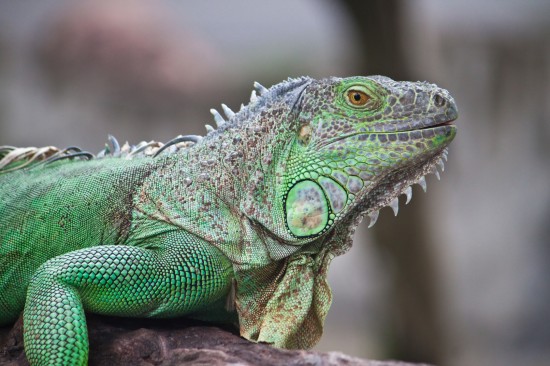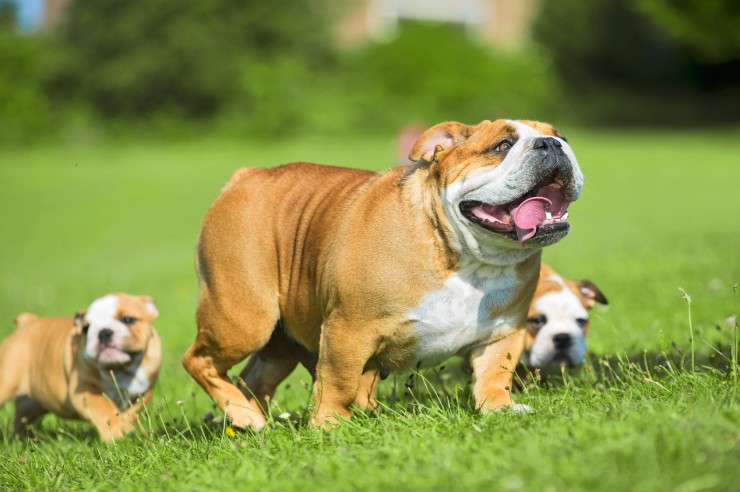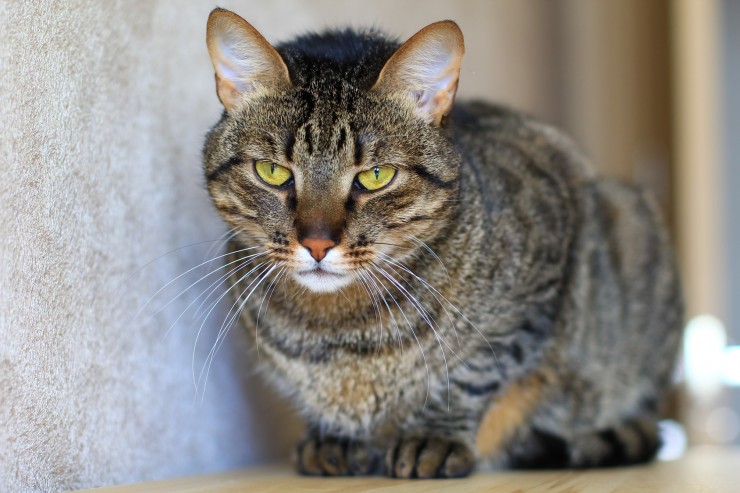The Poison Control Hotline (888-426-4435) sponsored by the ASPCA is a 24/7 service with board-certified veterinarians readily available to callers.
You put the finishing touches on your made-from-scratch, three-layer, German chocolate cake, check your watch and realize you have only moments to spare before the kids arrive for the birthday party. Pushing the cake to the back of the counter, you dart upstairs to grab your shoes. When you return to the kitchen a scene like none other greets you. The cake or what抯 left of it, crumbs really, is scattered about on the floor and your 120 pound Newfoundland is smacking her lips and trying pathetically to hide from your view as effectively as a submarine in a swimming pool.
Angry doesn抰 begin to describe how you feel. Worse, you don抰 even have time to do more than scold the dog before a car transporting the first eager child pulls in the driveway. Racing to scoop up the fallen cake, you realize that you now have two very large problems. There is no birthday cake for the birthday girl and the dog has just devoured a ton of chocolate, a food you know to be poisonous to dogs.
You send your husband to the grocery store for ready-made cupcakes; turn the birthday guest out into the fenced yard with the naughty dog and the unsuspecting birthday girl, say goodbye to the child抯 mother, then dial the ASPCA抯 Animal Poison Control Center at (888) 426-4435.
Glancing out the window as you wait for the connection to go through, you see another eager beaver, present in hand, bounding toward the kitchen door. When the phone is answered, you babble excitedly about a malevolent dog scoffing up a chocolate cake and ruining a birthday party. The poison control person kindly asks that you take a deep breath, relax and start over. Easy for you to say, you think, as you let little Johnny in, wave to his mom who instantly departs (thank God) and blurt out, 揗y dog ate an entire, three-layer chocolate cake, now what??
After delivering a quick explanation of the $60.00 consultation fee and securing your agreement to pay, the poison control agent asks what kind of dog you have, her age, sex and approximate weight? You repeat the circumstances surrounding the unfortunate ingestion while reaching for the recipe card to determine the exact amount of chocolate.
揘o symptoms yet,?you offer in response to the query. 揑t just happened.?
The voice on the other end gives you detailed information about what to expect. The dreaded symptoms of vomiting and diarrhea head up the list. Oh good, you think, trying to envision the quantity of each that might be discharged by a 120 pound dog. You are told to take the bad beast to a vet immediately if she has seizures, loses consciousness or has difficulty breathing. (I抦 the one who抯 hyperventilating.) Sinking into a chair, you offer a grateful goodbye and through the window observe the glutinous devourer, happily cavorting outside with the kids looking none the worse for wear.
Scenarios similar to the one just recounted are common occurrences. Accidental pet poisonings constitute the majority of all poisonings reported to poison control centers and of these, about 75% occur at home. Some animals are not particularly finicky about what they eat or drink and others, especially those with food fetishes, are prone to tasting everything and anything at least once.
As a pet owner you try to be conscientious about your pet抯 health, grooming, physical fitness and need for affection, but you can抰 be everywhere at once and don抰 have eyes in the back of your head. Still, your pet is dependent on you for its safety. The best way to keep a pet poison free is by prevention. Here are some tips to keep your pet safer and make your life less stressful:
* Know what plants, foods, household cleaners, drugs, garden supplies and other substances are poisonous to your pet. You can find this information online at a number of poison control sites or ask your vet for a list of poisonous substances pertinent to your particular pet.
* Keep poisonous items out of the reach of your pet. Scour your yard, house, garage and other outbuildings for possible poisons, removing what you can and putting any substances, like fertilizer or antifreeze, in a pet-inaccessible place. It is difficult to identify which substances may be poisonous so the best rule of thumb is to keep everything that might be ingested away from your pet. Don抰 leave a possible poison inside a closet or cabinet at pet level either because if the door is accidentally left open, a curious animal may investigate. If you are throwing out spoiled food, secure it in a tightly closed garbage container; don抰 leave it in the kitchen trash can. Dogs, especially, are drawn to fragrant or malodorous substances and talented at overturning trash receptacles.Some plants commonly used in landscaping and kept as houseplants are poisonous. Unless you want to replant your landscape with pet-appropriate shrubs and plants or throw out poisonous houseplants, you will need to watch your pet to see if it evinces any interest in the poisonous ones. If you walk your pet on a leash, pay attention to what it may be tempted to eat along the way: tree or shrub berries, nuts like acorns, dead critters such as frogs, snakes, mice, birds and insects or dropped food containers and wrappers. While your pet may not be ingesting an actual poison, any of these things could prove unhealthy.
* Talk to your children about pet poisons and enlist their help in protecting your pet. Explain to your children the danger posed to your pet by poisonous foods and insist they not feed it anything other than its usual pet food. Tell them that chocolate, grapes, raisins, avocados, chewing gum, candy, and baked goods are okay for people to eat, but poisonous to pets. Remind children not to leave food on countertops or table tops where your pet can find it. Ask them to pick up dropped food and wipe up spills to prevent pet ingestion and to hold food items like chocolate candy bars high enough to be out of the pet抯 reach. Encourage them to keep small toy pieces and things like buttons, coins, shells and stones away from your pet.
* Consult with your lawn service about pet product safety. If your service regularly fertilizes or applies weed killers and insecticides, advise them of your pet and insist they use pet-safe products only. Some services will tell you to keep the pet inside during the application, even ask you to keep pets off the lawn for 24 hours. One can only wonder how 24 hours can make a difference if the same product is still on the same lawn the following morning.
* Never give your pet human medicine or drugs without consulting a veterinarian. What works for your health problem could be poisonous to your pet; never share your medication. Always ask your vet for advice before giving any drugs to your pet, even an over-the-counter drug. Don抰 attempt to save money by treating your pet yourself. You may end spending a fortune trying to repair the damage.
* Give some serious thought to the toys you buy for your pet. All pet products are not alike. Don抰 be lulled by labeling and do check the materials used by the manufacturer in producing the toy. When you introduce a new toy to your pet, observe the play process to ensure that the toy is not chewed to pieces and ingested.
* Don抰 spray aerosols like room deodorizers or furniture polish near your pet. Inhaled droplets can become trapped in your pet抯 lungs and set up a welcoming environment for pneumonia.
* Avoid using tick and flea products unless recommended by your pet抯 veterinarian. It is not uncommon for some pets to have adverse reactions (confusion, lethargy) to the typical flea and tick collars sold in grocery and pet stores.
* Never use rat poison, slug bait, ant canisters or any toxic substance to exterminate pests if you have pets. Rat poison is one of the most deadly of all toxins to pets. Worse, poisoning symptoms may not be manifested for several days and by then it could be too late to save your pet. Pets can ingest poison directly or be poisoned indirectly, usually by eating a rodent that has been poisoned.Use snap traps or humane traps for mice and rats instead of rat poison. Beer in plastic lids works well as slug bait. Ant canisters should be kept off the floor. If your pet is free to roam off your property, ask you neighbors to please alert you should they plan to use toxic products. This will allow you to contain your pet in advance.
* Keep 3 resource numbers handy in case of an emergency. In a crisis, you need to be calm and the best way to head off panic is to have a plan. Locate and post in an obvious place the telephone numbers of your vet, the nearest animal surgical center or clinic and a poison control center.
What To Do If Your Pet Is Poisoned
As hard as we try to keep our pets safe, accidental poisonings do happen. Know what to do if you suspect your pet has ingested a suspicious substance.
Observe your pet for symptoms of poisoning. Vomiting, diarrhea, confusion, listlessness or lethargy, seizures and difficulty breathing, swallowing or ambulating are indications of some untoward event. If your pet抯 condition appears life threatening, waste no time in getting your pet to a pet clinic, vet抯 office or pet hospital.
If you know your pet has ingested something harmful but it is symptom free at the time you recognize the event, call an animal poison control center immediately or your veterinarian. The Poison Control Hotline (888-426-4435) sponsored by the ASPCA is a 24/7 service with board-certified veterinarians readily available to callers. Assisting pet owners and veterinarians, the hotline provides information about toxicity and treatment. While you are obtaining the information you need, try to make your pet as comfortable as possible and keep it contained. Some animals run off when they are sick.
Locate the offending substance if you can and estimate the amount ingested. Save any packaging materials and if possible, bag a portion of the substance to take with you to the veterinarian.
Do not attempt to induce vomiting unless you are directed to do so. Some ingested materials, if vomited, can cause further injury to your pet.
Follow the directions received over the phone by your veterinarian or the poison control center; however, if you have any doubt about your ability to handle a poisoning situation, never hesitate to go immediately to the veterinarian抯 office or animal clinic. Some poisoning incidents can turn fatal relatively quickly.
The poisoning of a family pet can be a very frightening, traumatic experience. You need to think clearly and unemotionally to make quick decisions and take decisive action梐ll easier said than done. Preventing a poisoning is the best medicine for your pet, but having a back up plan should a poisoning disaster occur is just as essential, maybe even a matter of life or death.
Useful Links:
http://www.aspca.org/pet-care/poison-control/ - Poison Control Center
http://petcare.suite101.com/article.cfm/Most_Common_Pet_Poisons_According_to_ASPCA - Most common pet poisons according to the ASPCA
http://www.aspca.org/pet-care/poison-control/plants/toxic-plant-list-printable.html?print=t - List of toxic plants

 Find the horse fences that will prevents lower awareness
Find the horse fences that will prevents lower awareness
Find the horse fences that will prevents lower awareness
Find the horse fences that will prevents lower awareness
 Dogs And House Soiling
Dogs And House So
Dogs And House Soiling
Dogs And House So
 Keeping Green Iguanas Successfully
Keeping Green Igu
Keeping Green Iguanas Successfully
Keeping Green Igu
 How Old Should Puppies Be Before They Leave Their Mother ?
How Old Should Pu
How Old Should Puppies Be Before They Leave Their Mother ?
How Old Should Pu
 How To Cope When Your Cat Is Stressed Out By A New Dog In The Home
How To Cope When
How To Cope When Your Cat Is Stressed Out By A New Dog In The Home
How To Cope When